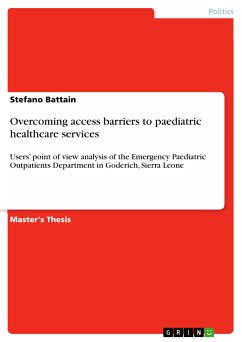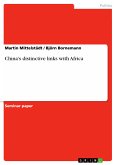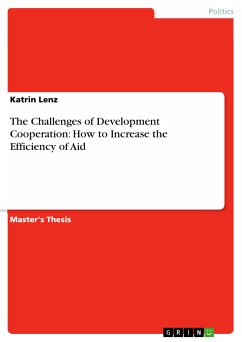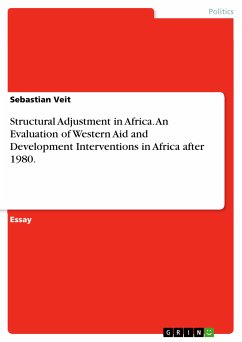Master's Thesis from the year 2008 in the subject Politics - Topic: Development Politics, grade: Merit, University of Birmingham (International Develpment Department), course: Poverty Reduction and Development Management, language: English, abstract: In the last sixty years international institutions explicitly recognised the primary role of healthcare for people’s well being. In 1948, the United Nation in the Universal Declaration of Human Right declared that all the human beings are equal and that childhood and motherhood should be especially protected. In 1978, the World Health Organisation and UNICEF with the declaration of Alma Ata jointly confirmed that health is a fundamental human right. More recently the United Nations included in the Millennium Development Goals the goal to drastically reduce under five mortality. Despite the official documents, in Sub Saharian Africa 157 children every thousand births still die before reaching the age of five years old. Access to healthcare is the key to improve children’s healthcare but also to alleviate part of women’s daily burden. The NGO Emergency provides free healthcare also in Sierra Leone, where the rate of under five mortality is of 288/1000. This research is a qualitative study mainly based on primary data collected during a three weeks fieldwork in Sierra Leone. It explores the factors preventing or discouraging women from accessing the paediatric service provided by Emergency in the village of Goderich. The primary data for this study were collected through twenty four semi-structured interviews, both with local women and with members of the Emergency staff. The literature review introduces some theories used during the research such as the Gender and Development approach, the concepts of household level and care-seeking strategy and the theory of health as part of human capital. It furthermore includes a description of the main barriers to accessing healthcare service at individual, household and community level. A theoretical framework summarises the content of the literature and provides a tool to analyse the primary data. During the research it proved to be also useful to structure the checklist used for the semi-structured interviews. The findings underline how the most important demand side barriers affecting the service are the indirect cost of accessing the service, but it should not be neglected the influence of informational, social and cultural factors. On the supply side, the strongest barrier is the attitude of part of the national medical staff working in the clinic. The final chapter answers to the research question and, based on the relevant literature, outlines some recommendations that could improve the access to the service.









